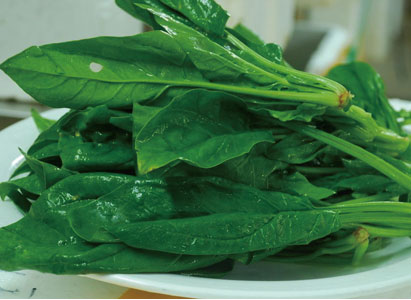Scientific and proper dietary plan plays a very important role in patients’ rehabilitation. Paying attention to laryngeal cancer patients’ dietary nursing and providing them sufficient and proper nutrient can enhance their resistibility and ensure the smooth completion of treatment plan.
The major problem of laryngeal cancer nursing is choking during patients’ swallowing. The best way to deal with this problem is to practice swallowing 15-20 days after surgery. Through swallowing practice, choking will become less and less, and finally disappear.

To prevent choking during swallowing practice, there are some tips for patients. For example, press the lower jaw with fingers when swallowing, or eat a full mouth of food to block the stoma when start eating. If these methods do not work, patients can also put an inflatable airbag in the incision of trachea. Fill the airbag before eating and release the gas after dinner. All these methods should be practiced under medical instruction. However, patients cannot completely rely on it and still need to overcome choking through practice.
What food should laryngeal cancer patients eat or avoid? Below is a detailed introduction by experts from Modern Cancer Hospital Guangzhou.
1. The diet should be digestible and contain rich nutrient, especially protein and vitamins. The food should be diversified, maintain good color, smell, taste and shape, so as to enhance patients' appetite. Besides, patients should have light diet and avoid fatty food. Some appetizing food can be added to the diet, so as to trigger patients’ appetite. Patients can eat less in a meal, but more meals in a day.
2. The diet should be light, containing anti-infection and anti-ulcer foods, such as grosvenor momordica fruit, water chestnut, honey, pork rind, mud snail, spinach, balsam pear, etc.
3. Foods for specific symptoms: for hoarseness: radish, pear, ginkgo, Job's-tears, plum, etc. For swallowing difficulty: almond, peach kernel, lily, etc. For emptysis: lotus root starch, lily flower, etc.
4. Eat more foods resisting laryngeal cancer or other malignant tumors, such as plantain, kalimeris, lobster sauce, almond, towel gourd, eggplant, etc.
5. Food prohibition: avoid alcohol, spicy or other stimulating foods; avoid mutton when infection happens. Family members should encourage patients to eat and manage their diet according to their toleration. Patients are allowed to eat more if they have good appetite, and do not force them to eat foods that they don’t like, in order not to cause nausea and vomiting.
Scientific and proper diet can not only provide laryngeal cancer patients with nutrition support, but also promote their rehabilitation, as well as help improve their immunity and prevent complications.
*Surgery, in addition to the appropriate chemotherapy and radiotherapy, are effective in treating early cancer, but certain patients in late stage of cancer may not be tolerate surgery well as they can be relatively weak. A combination of carefully planned minimally invasive therapy, chemotherapy or radiotherapy can effectively reduce the side effects and discomfort of treatment and may help patient get better efficacy.













 viber
viber